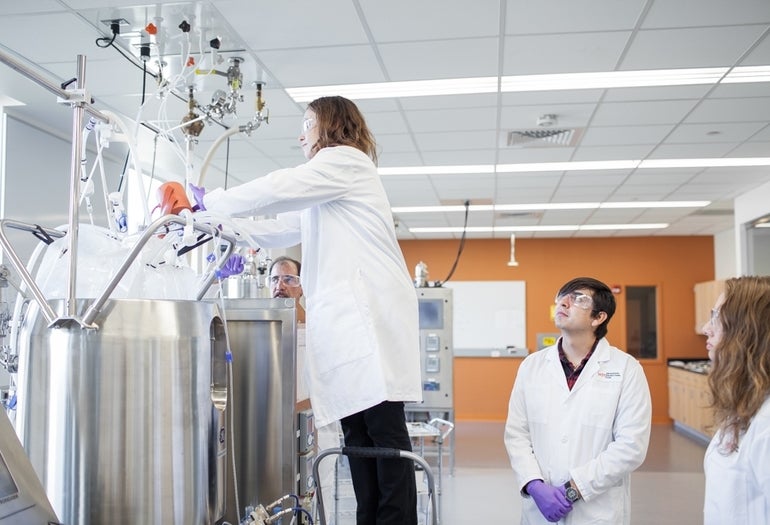Two Worcester biomanufacturing leaders are teaming up to establish a $5.2-million bioindustrial manufacturing tech hub as part of a larger Massachusetts initiative to strengthen regional innovation ecosystems.
Worcester Polytechnic Institute and Massachusetts Biomedical Initiatives will partner with the City of Worcester, along with 30 additional regional partners, to create a BioHub aimed at advancing the commercialization of new food, fuels, chemicals, and materials, according to Thursday press releases from WPI and the Massachusetts Executive Office of Economic Development.
“WPI’s strengths in advanced manufacturing, biotechnology, and life sciences make us a natural catalyst for collaboration and economic growth,” WPI President Grace Wang said in the university’s release. “The BioHub builds on this foundation, bringing together academic, industry, and government partners to drive biomanufacturing innovation, create jobs, and expand opportunity for people across Central Massachusetts and beyond.”
The BioHub will consist of 14,000 square feet of research and development space, with the goal of executing over 24 pilot projects, training more than 500 people, and developing 3,000 new jobs over the next three years.
The university will grant the BioHub use of its 10,000-square-foot Biomanufacturing Education and Training Center.
Beyond the goals of the initial initiative, WPI intends for the hub to foster a network of bioindustrial companies to collaborate on further research and training.
“By designating Worcester as a BioHub, the Healey-Driscoll administration will help the city build on the work it has already been doing to make the city a hub of innovation and help grow industry across the state,” Worcester City Manager Eric Batista said in the WPI release.
WPI expects the hub will generate 20 times the state’s $5.2 million investment in economic output.
WPI and MBI’s funding is part of $16.3 million being dispersed to organizations throughout 14 regions of the state, all for the purpose of creating tech hubs throughout several sectors, including manufacturing, housing, sustainability, and AI.
Financing for the projects is provided by the state’s Mass Leads Act and is administered through the Massachusetts TechHubs Program.
“Our administration believes that innovation doesn’t just happen in one ZIP code, it happens in every community when we provide the tools and investment to help it thrive,” Lt. Gov. Kim Driscoll said in the state’s release.
Mica Kanner-Mascolo is a staff writer at Worcester Business Journal, who primarily covers the healthcare and diversity, equity, and inclusion industries.

